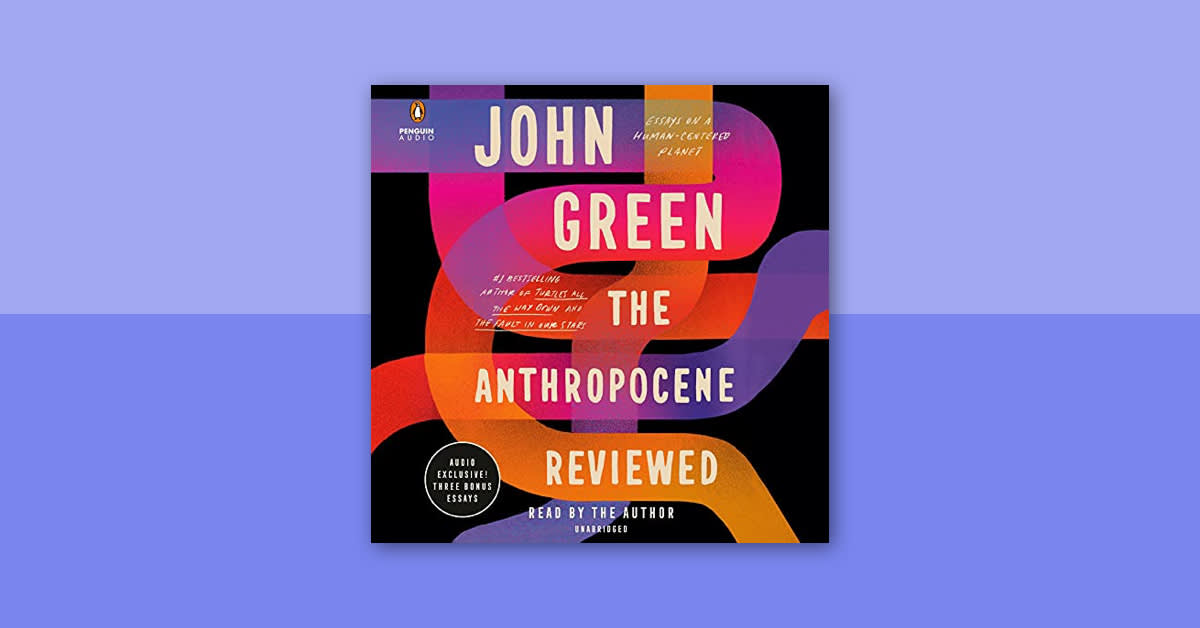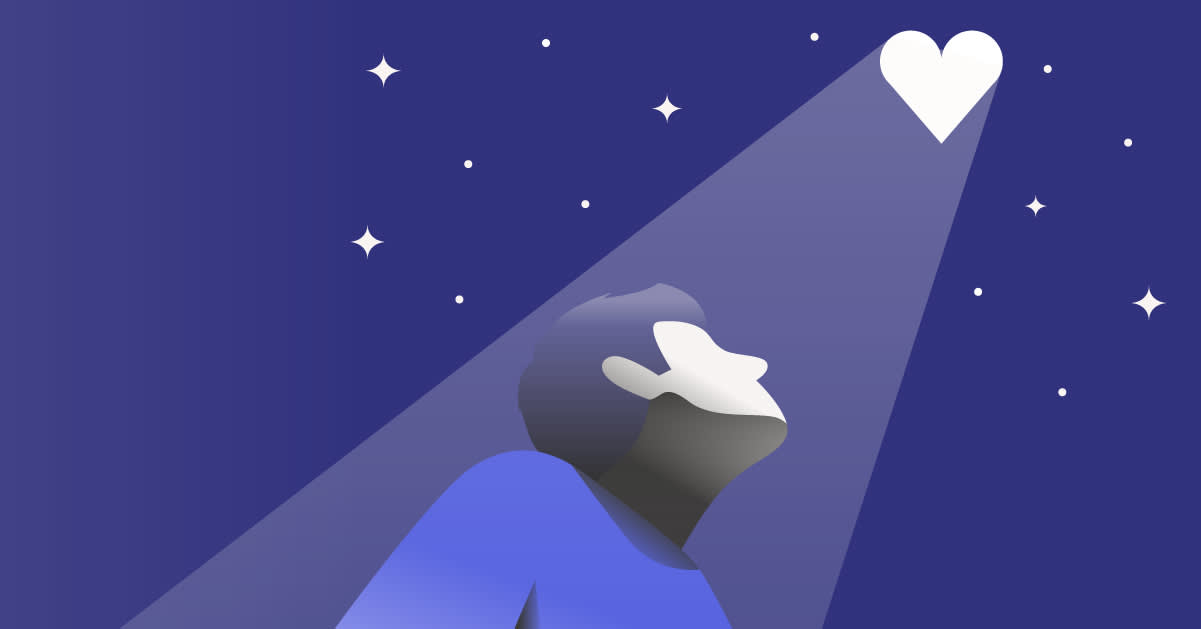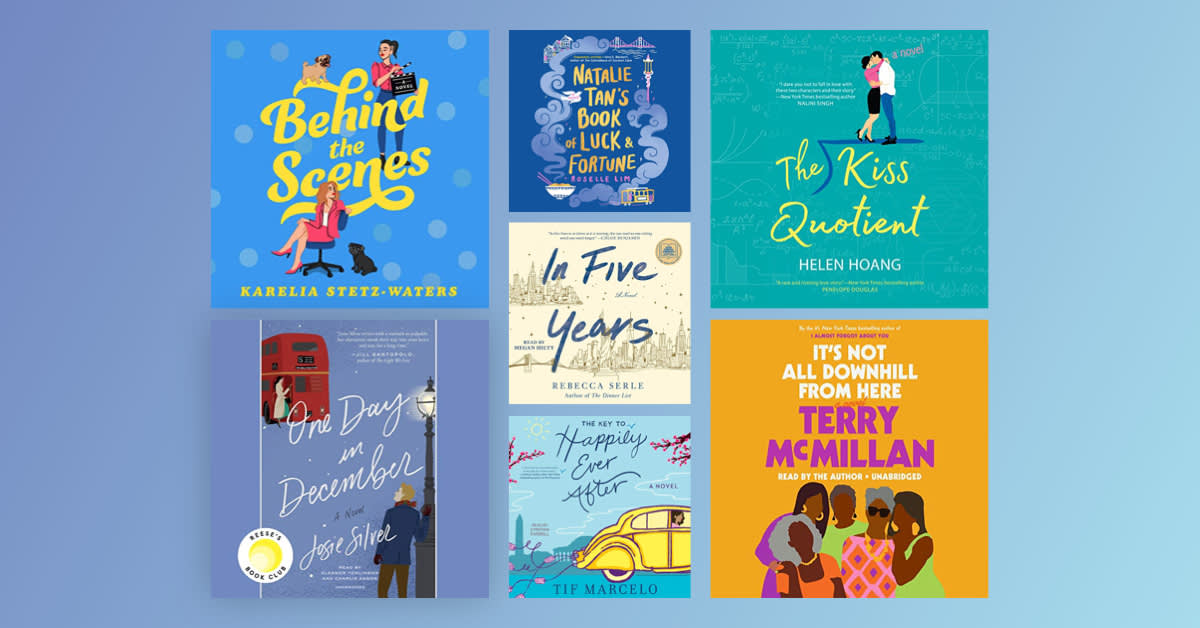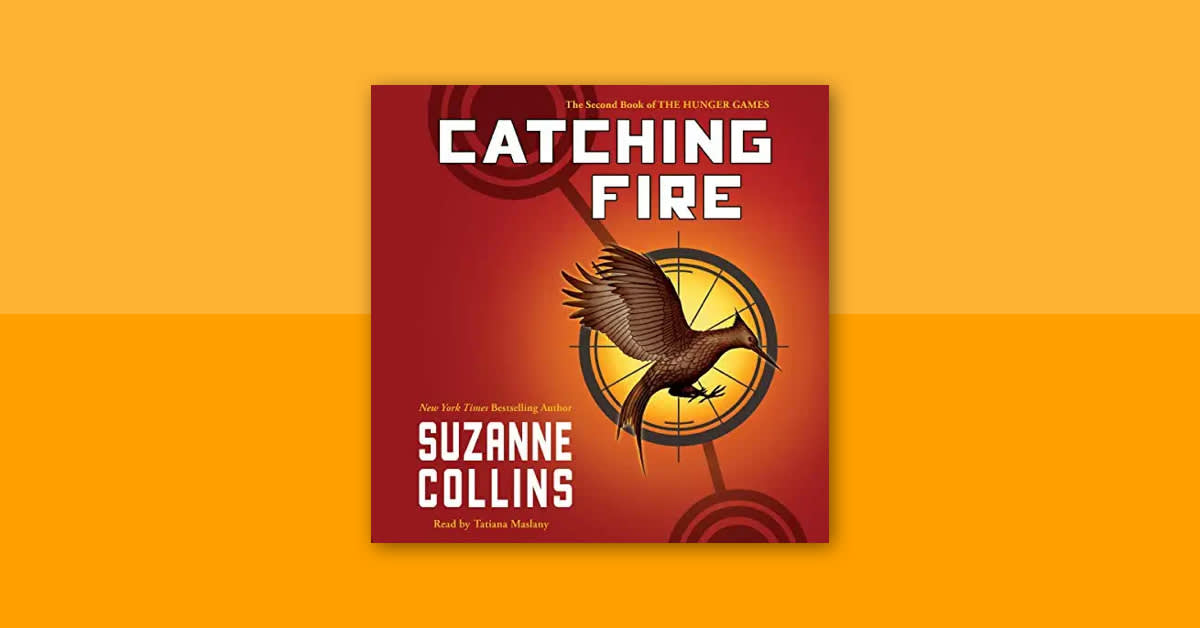Though I can distinctly recall checking The Fault in Our Stars out of my high school library at the height of its massive popularity to see what all the buzz was about, I admittedly was unfamiliar with the wider John Green canon until I hit college.
It was at this time that I began dating someone who entrusted me with a dog-eared, highlight-ridden paperback of one of his favorite books—John Green’s Looking for Alaska. The book, he noted in a short letter that still sits wedged between the pages, was fundamental to shifting his perspective on relationships. It encouraged him to push back on the cultural understanding that young women were meant to fix or otherwise lend meaning to the lives of lost or sensitive young men. Found at a vulnerable moment, a crossroads in his life, the book nudged him in a direction that made him a more attentive friend and a better partner.
Without question, our teen and young adult years are among our most formative. It is then that we learn how to connect with each other and our world at large, form and navigate relationships on our own, and craft identities for ourselves independent from our upbringing. But therein lies the peculiar thing about revisiting the young adult genre as a fully-grown adult—it reconnects us to that moment in time, allowing us to continue to learn, empathize, and develop a deeper sense of self, regardless of age. Teens need stories that speak directly to them, and YA certainly serves that end. But for adults, reconnecting with those invincible and exposed years that felt so untenable, so wholly wonderful and impossibly cruel, can offer something all its own, whether that be insight into a past version of ourselves or an invitation to grow and evolve.
Reading Alaska at 20, as opposed to 15 or 16, was impacted by an understanding of the titular character won only by my own maturation. Alaska’s defense mechanisms, her aloofness, her feigned confidence and overt intellectualism concealing deep hurt and insecurity—these things felt familiar, gestures I recognized from my own youth and knew to be emblematic of deep sorrow and a need for intervention. And if I were still in high school, I'm sure I would’ve found kinship in a character who felt hurt and lost, while gleaning hope from the fact that she was still capable of being loved. Both of those experiences forge a valuable connection, proving that no matter when you come across them, stories hold a unique magic incapable of being defined by the boundaries of age.
Which brings us back to John Green, an author who has captured the moments and emotions of our young lives (ultimately blips in our life story that nevertheless feel painfully significant) so expertly that his work holds opportunities for listeners of all ages. And his commitment to kindness, to openness, to forging empathy and understanding only furthers a great end—to help teens develop rich inner lives while in turn recognizing the inner lives of their peers.
Since my increasingly distant teen years, Green has released a number of titles that demonstrate his ability to write with a profound appreciation of what it means to be human through the lens of youth’s agonies and rhapsodies. He’s also spread out into podcasts and an essay collection that feed a boundless desire to stay optimistic despite considerable uncertainty; his continued work on charitable endeavors expand that capacity for love and hope further, offering a light to a wider global community.
It’s a message I, in all honesty, desperately needed to hear when I was a teen—that life continues despite suffering, that the relationships we forge are what will keep us going, that above all else, as Green writes in Looking for Alaska, "We need never be hopeless because we can never be irreparably broken."
So, yeah, I may have been just a bit behind on discovering the YA phenom, but take my word for it—it’s never a bad time or too late to start. So, start your journey here, with all of John Green’s published works in audio, from his young adult novels to his chart-topping podcasts.
Fiction
It’s difficult to believe Looking for Alaska is Green’s first published novel—and I’m not just saying that because it’s my personal favorite. A nuanced meditation on grief, trauma, and the disastrous complications arising from failing to (as Green himself puts it) “imagine people complexly,” this novel should be required listening for all young adults. Told from the perspective of Miles “Pudge” Halter, a teen boy who finds himself falling for (and simultaneously deifying) the self-destructive but captivating Alaska Young, a classmate at his new boarding school, Looking for Alaska examines the ways in which young men often apply great significance to their romantic interests without ever truly knowing them. When Pudge looks at Alaska, he sees the girl of his dreams—beautiful and smart, with a bit of an edge that makes her all the more interesting. But what Pudge fails to understand about Alaska in his over-idealization of her has far-reaching, irreversible consequences. Green intersperses the youthful voice he crafts for Pudge with moments of pure poetry considering existence, the afterlife, and the massive impact that one soul can have on another.
While Green’s navigation of emotion, turmoil, and those darkest parts of the human experience is one of his hallmarks, it’s a shame that less is said about his incredible sense of humor. Throughout all of his works, he shows off an ability to manipulate language in a way that makes a punchline feel earned; his humor is sharp, often deadpan, and it adds a kind of genuine levity reflecting real life. In one of his more lighthearted novels, An Abundance of Katherines, that irreverent wit is on full display. Child prodigy Colin Singleton fears his life won’t amount to his potential, as all he has to show for his genius are math skills and a string of 19 ex-girlfriends—all named Katherine. When his best friend Hassan convinces him to come along on a road trip, Colin feels he might finally achieve his “eureka!” moment and prove his brilliance.
Papers Towns is a listen that has a moral nearly identical to that of Looking for Alaska, warning teens that those big feelings and great significance they ascribe to the objects of their affection are deeply unfair, rooted in assumptions and ascriptions that neglect the whole person—their lives, their histories, and their own emotions—beyond that all-consuming crush. Green wrote Paper Towns in part to respond to misunderstandings about Alaska, as he felt that perhaps he had not tackled the tropes of the manic pixie dream girl or the over-idealization of a romantic interest adequately. In this listen, Quentin Jacobson (better known as “Q”) sets off on a whirlwind chase for his neighbor Margo Roth Spiegelman, a mysterious young woman he’s pined for since their youth, after she vanishes and leaves clues behind, seemingly for him to follow.
Green’s 2012 novel The Fault in Our Stars was nothing short of a literary juggernaut. I was in high school at the time of its release, and it was impossible to walk the halls without seeing a classmate with that bright blue, cloud-punctuated hardcover in tow. And that was two years before the film adaptation arrived, catapulting this listen from book club favorite to mainstay of every best seller list. This absolutely shattering love story between teen cancer patients Hazel Grace Lancaster and Augustus Waters is the kind of narrative that stays with you long after the last word. Filled with humor despite the heartbreak, it's a celebration of life that is unflinchingly honest about the inevitability of death. But in my opinion, the backstory is what makes it a standout. Green was inspired to write The Fault in Our Stars in part by his time spent as a chaplain at Ohio’s Nationwide Children Hospital, in addition to his friendship with the late Esther Earl, a teen battling cancer. The novel is dedicated to her memory.
A tireless advocate for the reality of living with mental illness, John Green has long been transparent about his struggles with obsessive compulsive disorder and the litany of anxieties, deep depressive episodes, and routines that accompany it. His personal experience with OCD informs his most recent novel, Turtles All the Way Down, a work that captures the exhaustive, endless spiral of fear that holds so many folks—myself included—hostage to their own rituals and mental checks. Turtles follows Aza Holmes, a high schooler balancing friendship and young love with her internal battles with both the sudden death of her father and an obsessive focus on contamination and infection. For those living with OCD, it’s a reminder that they are not broken or alone—and for those unburdened by mental illness, it’s both a window into the pains of our lived experiences and a call to empathy.
Nonfiction
One of our picks for 2021’s Best of the Year, John Green’s essay collection, adapted from his podcast of the same name (more on that later), is one of the most stunning reflections on humankind—our history, our future, and all our quirks and eccentricities—out there. Each essay is heartfelt and hopeful, studded with Green’s signature dry wit. Zeroing in on aspects of the anthropocene (the geological age in which humans began to make their mark on the planet), Green muses on the magic of mundanities ranging from teddy bears to the spectacle that is Nathan’s annual hot dog eating competition. The Anthropocene Reviewed is a reminder that those everyday things we may take for granted are imbued with more meaning than we realized—and that, despite the strain and stress of daily life, the Earth and its varied inhabitants make it all worthwhile.
Podcasts
Whether you’ve finished the essay collection and are looking for more or you just want to dip in and explore episodes by your own interests, John Green’s soothing solo podcast is sure to provide an informative perspective with a bit of comfort and a whole lot of heart. Green offers a philosophical, thoughtful lens to the oddities and obsessions of our wonderfully weird human world—be it scratch-and-sniff stickers or Super Mario Kart, Diet Dr. Pepper or rock, paper, scissors—reviewing and rating each peculiarity or fascination along the way. We give The Anthropocene Reviewed podcast five stars
Despite his status as one of the foremost authors in the young adult genre, John isn’t the only famous Green brother. Enter Hank Green—scientist, vlogger, activist, TikTok sensation (yes, you read that correctly), and a published author in his own right, with the hit coming-of-age sci-fi duology An Absolutely Remarkable Thing and A Beautifully Foolish Endeavor to his credit. And as fans of their long-running YouTube channel VlogBrothers can attest, whenever the two share a stage, things are about to get interesting. In Dear Hank and John, the Green siblings lend two totally different disciplines and demeanors to big questions, newsworthy stories, and inquiries from listeners. It’s pure dorky joy, and a great way to start your day.
Our Favorite John Green Quotes
"The only way out of the labyrinth of suffering is to forgive." — Looking for Alaska
"We need never be hopeless, because we can never be irreparably broken." — Looking for Alaska
"Imagining the future is a kind of nostalgia." — Looking for Alaska
"Sometimes you lose a battle. But mischief always wins the war." — Looking for Alaska
"If only we could see the endless string of consequences that result from our smallest actions. But we can't know better until knowing better is useless." — Looking for Alaska
"What is the point of being alive if you don't at least try to do something remarkable?" — An Abundance of Katherines
"You don't remember what happened. What you remember becomes what happened." — An Abundance of Katherines
"What a treacherous thing to believe that a person is more than a person." — Paper Towns
"I'm not saying that everything is survivable. Just that everything except the last thing is." — Paper Towns
"If you don't imagine, nothing ever happens at all." — Paper Towns
"It is easy to forget how full the world is of people, full to bursting, and each of them imaginable and consistently misimagined." — Paper Towns
"You don't get to choose if you get hurt in this world...but you do have some say in who hurts you." — The Fault in Our Stars
"Some infinities are bigger than other infinities." — The Fault in Our Stars
"The marks humans leave are too often scars." — The Fault in Our Stars
"Grief does not change you...It reveals you." — The Fault in Our Stars
"Books so special and rare and yours that advertising your affection feels like a betrayal." — The Fault in Our Stars
"You are so busy being you that you have no idea how utterly unprecedented you are." — The Fault in Our Stars
"Your now is not your forever." — Turtles All the Way Down
"It's quite rare to find someone who sees the same world you see." — Turtles All the Way Down
"You're both the fire and the water that extinguishes it. You're the narrator, the protagonist, and the sidekick. You're the storyteller and the story told. You are somebody's something, but you are also your you." — Turtles All the Way Down
"True terror isn’t being scared; it’s not having a choice on the matter." — Turtles All the Way Down
"The thing about a spiral is, if you follow it inward, it never actually ends. It just keeps tightening, infinitely." — Turtles All the Way Down
"We're such language-based creatures that to some extent we cannot know what we cannot name. And so we assume it isn't real. We refer to it with catch-all terms, like 'crazy' or 'chronic pain,' terms that both ostracize and minimize. The term 'chronic pain' captures nothing of the grinding, constant, ceaseless, inescapable hurt. And the term 'crazy' arrives at us with none of the terror and worry you live with." — Turtles All the Way Down
"You remember your first love because they show you, prove to you, that you can love and be loved, that nothing in this world is deserved except for love, that love is both how you become a person and why." — Turtles All the Way Down
"Actually, the problem is that I can’t lose my mind...It’s inescapable." — Turtles All the Way Down
"One of the challenges with pain—physical or psychic—is that we can really only approach it through metaphor. It can’t be represented the way a table or a body can. In some ways pain is the opposite of language." — Turtles All the Way Down
"Thoughts are only thoughts. They are not you. You belong to yourself even when your thoughts don't." — Turtles All the Way Down
"To fall in love with the world isn’t to ignore or overlook suffering, both human or otherwise. For me anyway, to fall in love with the world is to look up at the night sky and feel your mind swim before the beauty and the distance of the stars. It is to hold your children while they cry and watch the sycamore trees leaf out in June. When my breastbone starts to hurt, and my throat tightens and tears well in my eyes, I want to look away from feeling. I want to deflect with irony or anything else that will keep me from feeling directly. We all know how loving ends. But I want to fall in love with the world anyway, to let it crack me open. I want to feel what there is to feel while I am here." — The Anthropocene Reviewed
"One of the strange things about adulthood is that you are your current self, but you are also all the selves you used to be, the ones you grew out of but can't ever quite get rid of." — The Anthropocene Reviewed
"Humans are not the protagonists of this planet's story. If there is a main character, it is life itself, which makes of earth and starlight something more than earth and starlight. But in the age of the Anthropocene, humans tend to believe, despite all available evidence, that the world is here for our benefit." — The Anthropocene Reviewed
"For me, finding hope is not some philosophical exercise or sentimental notion; it is a prerequisite for my survival." — The Anthropocene Reviewed
"I am thoughtful—full of thoughts, all the time, inescapably, exhaustingly. But I am also mindless—acting in accordance with default settings I neither understand nor examine." — The Anthropocene Reviewed
"When people we love are suffering, we want to make it better. But sometimes—often, in fact—you can't make it better. I'm reminded of something my supervisor said to me when I was a student chaplain: 'Don't just do something. Stand there.'" — The Anthropocene Reviewed
"You can’t see the future coming—not the terrors, for sure, but you also can’t see the wonders that are coming, the moments of light-soaked joy that await each of us." — The Anthropocene Reviewed
"I know the world will survive us—and in some ways it will be more alive. More birdsong. More creatures roaming around. More plants cracking through our pavement, rewilding the planet we terraformed. I imagine coyotes sleeping in the ruins of the homes we built. I imagine our plastic still washing up on beaches hundreds of years after the last of us is gone. I imagine moths, having no artificial lights toward which to fly, turning back to the moon." — The Anthropocene Reviewed
"I remember thinking that I would never be a kid again, not really, which was the first time I can recall feeling that intense longing for the you to whom you can never return." — The Anthropocene Reviewed
"All of life is dependent upon other life, and the closer we consider what constitutes living, the harder life becomes to define." — The Anthropocene Reviewed
"Art is where what we survive survives." — The Anthropocene Reviewed














